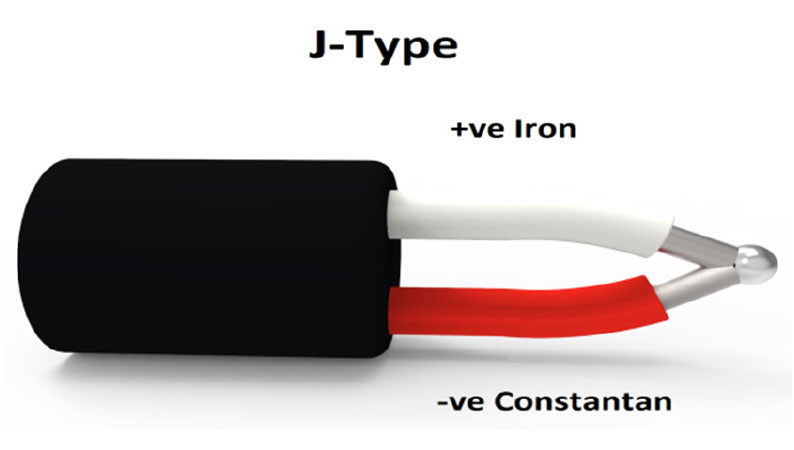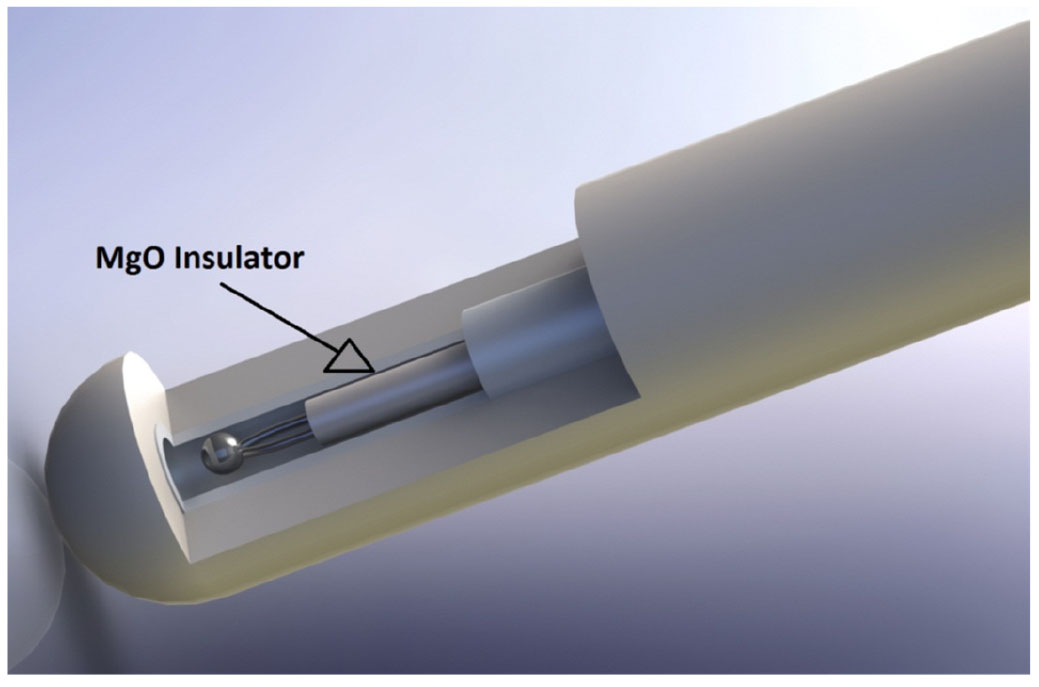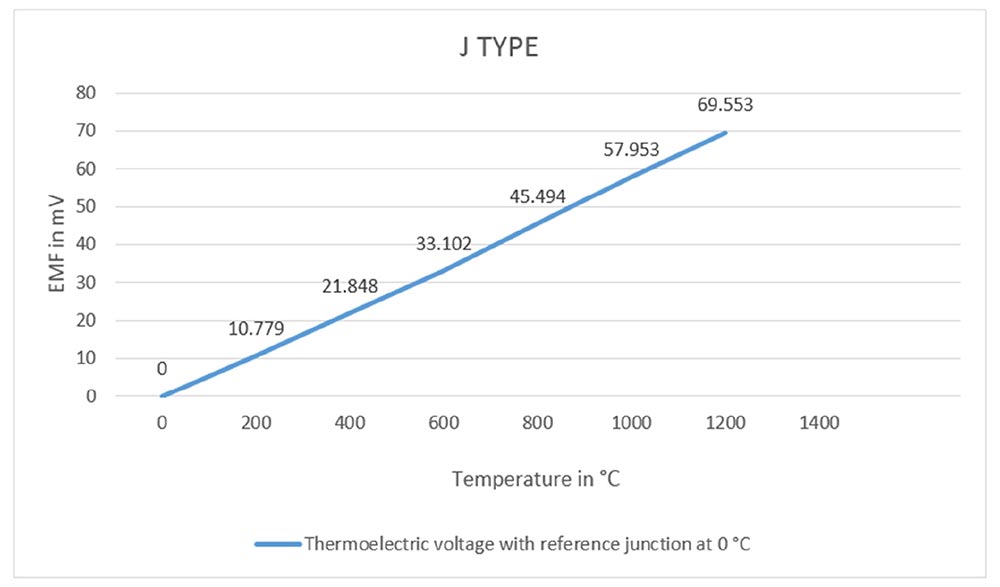- Home
- About
- Products
- Contact Temperature Sensors
- Cables & Wires
- Mineral Insulated Cables
- Nickel & Thermocouple Alloy
- Industrial Heaters
- Heating Cables and Mats
- Non Contact Temperature Sensors
- Industrial and R&D Furnaces
- Temperature Calibrators
-
Circulating Chiller
- Services
-
Special Products
- Thermal Profiling System
- Industries
- Resources
- Contact Us
- Shop
Type J Thermocouple
Type J thermocouple is a very common and general purpose thermocouple. It has smaller temperature range and a shorter lifespan at higher temperatures. It consist of positive leg made of an Iron wire and negative leg made of an Constantan ( Copper-Nickel ) alloy wire. Due to the Curie Point of the iron at 770 °C Type J has a limited temperature range of -40°C to 750°C.It should not be used at high temperatures in an oxidizing atmosphere as iron undergoes a molecular change and permanently loses its standard voltage output versus temperature. It does not recover when the iron is cooled. Type J has sensitivity of approx 50 microvolts/ degree C .The expenses and reliability of Type J is same as Type K. For proper working of J Type thermocouple reduction atmosphere is desired and use at low temperature is also not recommended.

In J Type thermocouple linearity varies by -70°C over its full range from -210°C to 1200°C.It has a very straight section from 100°C to 500°C which deviates at about -0.5 °C. The lower & higher ranges can be extended with a loss in linearity.

Why To Prefer J Type Thermocouple:-
- Among all types of thermocouple Type J is the cheapest thermocouple
- J Type thermocouple gives 1mV output for 18 degree C
- Useful in reducing atmospheres
- If J Type is protected by compacted mineral insulation and appropriate outer sheath, it is useable from 0 to 816°C, (32 to 1500°F). It is not susceptible to aging in the 371 to 538°C, (700 to 1000°F) temperature range
Composition:-
In J Type thermocouple positive leg is composed of Iron(Fe) and negative leg is composed of mixture of Copper 55% and Nickel wire 45% which is known as constantan alloy.
Type J Insulation Material:-
In J Type Thermocouple mainly MgO insulation is used. Due to many desirable characteristics of MgO such as fast response, compact size, broad temperature range, formability, weld ability, durability, accuracy, thermal shock and vibration resistance makes it an excellent choice for virtually all laboratory or process applications. The standard MgO insulation consist of ANSI/ASTM standard limits of error conductor material and standard (96%) pure insulation.
MgO Insulation provide initial calibration tolerances for thermocouple at the temperature range of 0 to 750 °C. Its standard tolerance is +2.2°C or +0.75% which best suits for these thermocouple.
Temperature Range:-
- Thermocouple grade wire, -346 to 1,400F (-210 to750°C)
- Extension wire, 32 to 392F (0 to200°C)
Accuracy (whichever is greater):
- Standard: +/- 2.2°Cor +/-0.75%
- Special Limits of Error: +/- 1.1C or4%
TOLERANCE:

EMF VS Temperature Graph for J Type Thermocouple

Pros And Cons:
Pros
- They are cheapest thermocouple
- Suitable for reducing atmospheres
- They are versatile and have widespread usage throughout industry
Cons
- Not suitable for temperature above760°C.
- They consist of iron wire in one leg so it rusts in humid The rust causes inaccurate readings & at worse opencircuit.
- This thermocouple get oxidized so it is not recommended for damp conditions or low temperature
- If used above 760 °C as an abrupt magnetic transformation will cause permanent recalibrations.


